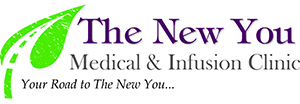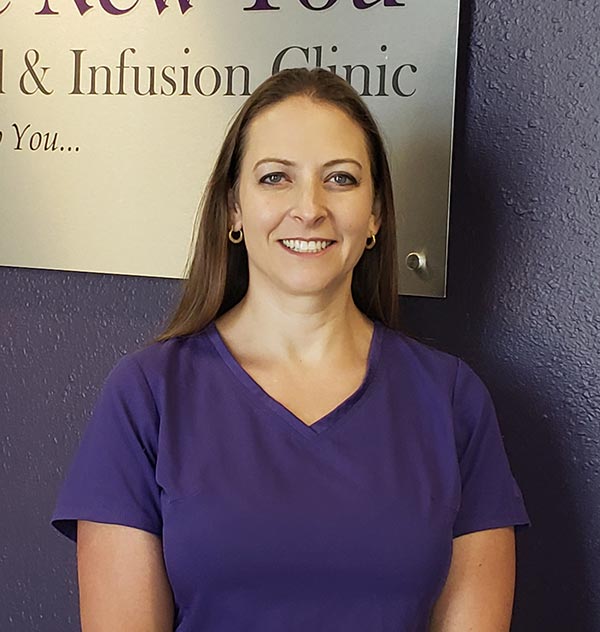Autism Treatment in Southlake, TX

Autism spectrum disorder, often called autism, is defined by the Autistic Self-Advocacy Network as a developmental disability. It is a lifelong condition characterized by numerous traits, including passionate interests in specific topics, unusual forms of communication, and self-stimulatory repetitive behavior.
Autistic people often struggle to thrive in society, and certain treatments and therapies may be able to help with these struggles.
To schedule a consultation with a healthcare practitioner in Southlake who specializes in autism, call (817) 203-2760 or contact Ms. Jessica Stangenwald online.
Conditions That Are Now Diagnosed as Autism
In 2013, the American Psychiatric Association released the fifth Diagnostic and Statistical Manual of Mental Disorders (DSM-5), which combined several neurodevelopmental disabilities--referred to as pervasive developmental disorders--into autism spectrum disorder. Those conditions are:
- Childhood disintegrative disorder: Once defined as a condition in which a child develops normally, but between the ages of 2 and 10, experiences a rapid decline in neurodevelopmental faculties.
- Asperger's syndrome: Was often described as the mild version of autism.
- Pervasive development disorder not otherwise specified (PDD-NOS): Referred to any set of symptoms that fit some of the general pervasive developmental disorder criteria, but not enough to fit one specific diagnosis.
What Causes Autism?
The medical community has not reached a consensus regarding any causative factors for autism. There is some evidence for autism having a genetic basis, but it is not known whether this basis is constituted by rare mutations or interactions between multiple genes. What is known for certain is that vaccines do not cause autism.
Autistic Traits
Autistic traits or characteristics vary wildly from individual to individual; one autistic person may be non-speaking and run their own business, while another may have a job and an advanced degree but not be able to live independently. These traits can include:
- Underdeveloped mental skills that help accomplish tasks (executive dysfunction)
- Unusual sensitivity to certain stimuli
- Non-standard ways of learning and approaching problem solving
- Special interests (deep, passionate interests in specific subjects)
- Atypical, often repetitive, and sensory-seeking movement; stimming--self-stimulatory repetitive behavior--may be used to self-soothe, focus, or express distress or excitement
- Need for consistency, routine, or order
- Difficulties understanding and expressing communication; some autistic people may never speak but use sign language or augmentative and alternative communication (AAC), while others may become non-speaking under stress
- Communication that is extremely self-referential
- Repeating theirs or others' words (echolalia)
- Difficulties understanding and expressing typical social interaction behavior, such as being uncomfortable with eye contact or not understanding sarcasm
- Unusual emotional responses (either blunted or overly extreme)
- Extremely high or low emotional empathy
- Poor interoception (being able to sense your body's internal state, such as identifying hunger, the need for sleep, or the need to eliminate waste)
- Unusual posture and facial expressions
- Anxiety, depression, or both
If you or your child experiences a number of these characteristics, talk with your healthcare provider about testing for ASD. Autistic people may also be predisposed to:
- Prosopagnosia (the inability to recognize faces)
- Auditory processing disorder
- Central sensory processing disorder
- Obsessive-compulsive disorder (OCD)
- Dyspraxia (motor coordination difficulty)
- Attention deficit hyperactivity disorder (ADHD)
- Intellectual disability (previously known as mental retardation)
- Avoidant/restrictive food intake disorder (ARFID)
Diagnosing Autism
Testing a child for autism can be done as early as six months old. An ASD diagnosis begins with an initial screening, such as a questionnaire, to gather information on one's development and behavior. If a screening indicates the possibility of autism, a more comprehensive evaluation will be done with the help of a team of professionals, including a psychologist, neurologist, and speech therapist. During this comprehensive evaluation, various tests--such as a neurological assessment or in-depth cognitive and language testing--are performed.
Autism Treatment
Once an ASD diagnosis is made, a treatment plan can be created. Since every autistic person is different, every treatment plan should utilize a patient's strengths and addressing their unique challenges, and may require support from physical or occupational therapists, nutritionists, pediatricians, and psychologists.
Therapies for Autistic People
Behavioral therapies are the foundation of autism treatment for most people. Cognitive behavioral therapy (CBT) is an individualized therapy that is often used to treat autistic children, but can be used for people of all ages. CBT works to change the way that people think and perceive situations, and reduce maladaptive emotional responses. CBT may be helpful in redirecting self-injurious stims into harmless ones, as well as help alleviate the depression and anxiety that many autistic people experience. Antidepressant and anxiolytic medication may also help with depression and anxiety.
Another therapy--geared toward autistic children--is applied behavior analysis (ABA), a highly structured program that uses aversive conditioning to discourage natural autistic behavior while rewarding socially acceptable behavior. While ABA has been successful in changing the behavior of autistic children, it has drawn criticism for relying on outdated theories and its goal of changing behavior rather than improving quality of life.
Coping Mechanisms for Autistic People
Autistic people, especially children, may have trouble emulating social skills from their peers, so they may need extra help learning these skills. Tips that parents, caretakers, and friends might use to help autistic people of any age improve their social skills include:
- Providing examples of common colloquial phrases or figures of speech
- Trying to provide them with specific instructions
- Understanding their need to stim or disengage from a social situation
- Respecting their need to adhere to schedules
- Encouraging them to ask questions if they are confused about expressions or directions
Many autistic people find that one of their greatest challenges in interacting with the world is sensory over- or under-stimulation. Other forms of autism therapy may not revolve around changing behaviors, but instead creating strategies to ease their sensory sensitivities in classroom or workplace settings. Several ways to ease this stress include:
- Self-stimulatory tools (stim toys or fidgets) may contribute to self-soothing and focus
- Weighted blankets may be calming in the event of sensory overload
- Earplugs or sound-isolating headphones may reduce the stress of loud or ambient noise
- Sunglasses or photochromic glasses may reduce the stress of bright light
A psychiatric healthcare provider may also be able to secure accommodations for an autistic person to help them individuals succeed in a school or work environment. Accommodations may include an individualized curriculum or extended deadlines for school, or being provided with a quiet, solitary environment at work.
With the right coping skills and accommodations, autistic people can live full, happy lives. To learn more about autism spectrum disorders and treatment available in Southlake, call (817) 203-2760 or contact Ms. Jessica Stangenwald online.
The New You Medical & Infusion Clinic
Address
100 Grapevine HwyHurst, TX 76054
(817) 203-2760
https://www.newyoumedclinic.com/
Hours
Mon:
10:00 am - 6:00 pm
Tue:
10:00 am - 6:00 pm
Wed:
10:00 am - 6:00 pm
Thu:
10:00 am - 6:00 pm
Fri:
Closed
Sat:
Closed
Sun:
Closed


